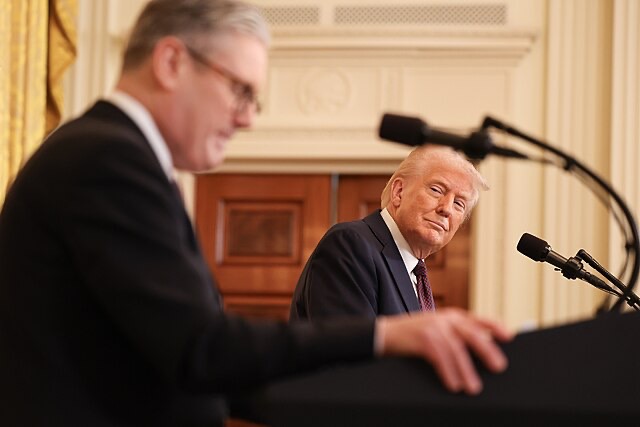As the UK braces for the upcoming state visit of Donald Trump, political tensions are boiling within the Labour Party. A growing faction of left-wing Labour MPs, often referred to as “Corbynistas,” are demanding that Prime Minister Keir Starmer block the former U.S. president from addressing the UK Parliament. Their call has ignited a fierce debate, not only about diplomacy but also about Labour’s core values and the future direction of the party under Starmer’s leadership.
Trump’s potential address to Westminster has become a flashpoint issue, with opponents citing his divisive rhetoric, controversial record on democracy, and inflammatory comments about NATO and Ukraine. As Starmer attempts to walk the tightrope between international diplomacy and internal party unity, the political stakes couldn’t be higher.
Trump’s Planned State Visit to the UK
Donald Trump is reportedly scheduled to return to the UK for a state visit in September 2025. Invited by King Charles, this visit would mark Trump’s second official state visit—a diplomatic rarity typically reserved for global allies of the highest standing.
The visit is expected to include formal meetings with government officials, a banquet hosted by the royal family, and potentially a rare opportunity to address both Houses of Parliament in Westminster Hall—a tradition granted to few foreign leaders.
While Downing Street is positioning the visit as an opportunity to strengthen UK-US ties and explore post-Brexit trade opportunities, the political optics are proving complicated for Starmer, especially given Trump’s enduring polarizing persona in UK political discourse.
The Call for a Ban: What Corbynista MPs Are Saying
More than a dozen Labour MPs, aligned with the party’s socialist wing and formerly loyal to Jeremy Corbyn, have issued formal objections to Trump’s potential address to Parliament. The group, including high-profile MPs like Kate Osborne, has petitioned House of Commons Speaker Sir Lindsay Hoyle to block the speech, arguing that it would be “entirely inappropriate” to offer such a platform to someone with Trump’s controversial past.
These MPs have pointed to several grievances:
- Trump’s alleged misogynistic and racist remarks
- His attacks on democratic institutions, especially post-2020 US election
- His skepticism of NATO and support for isolationist foreign policy
- His recent statements criticizing British leadership and the war in Ukraine
They argue that allowing Trump to speak would not only be hypocritical but also a betrayal of the very values Parliament claims to uphold.
Why MPs Oppose Trump’s Address
Opposition to Trump’s potential speech stems not just from political disagreements, but from concerns about legitimizing a figure who many see as anti-democratic. In the eyes of his critics, Trump represents a threat to the international liberal order.
These concerns have only intensified in the wake of Trump’s recent remarks, where he suggested that Ukraine should accept territorial losses to Russia to “end the war quickly.” MPs opposing Trump fear that giving him a global platform during a UK state visit would reinforce divisive ideologies and normalize behavior they find dangerous.
This debate isn’t just about one man—it’s about what kind of leaders the UK chooses to elevate on the world stage, and whether Parliament should serve as a symbolic endorsement of those leaders’ views.
Starmer’s Diplomatic Dilemma
Keir Starmer finds himself caught in the crossfire. On one side, his party’s left-wing MPs are calling for a bold moral stance; on the other, diplomatic protocol—and realpolitik—require tact when dealing with a former U.S. president who could once again occupy the White House.
Starmer’s goals for the Trump visit include:
- Solidifying a UK-US trade framework
- Enhancing defense cooperation, especially on NATO policy
- Projecting statesmanship on the global stage
Blocking Trump’s address could jeopardize these goals, yet allowing it may alienate a significant portion of his party’s base. How Starmer responds will be a defining moment in his leadership—testing both his political courage and his diplomatic finesse.



